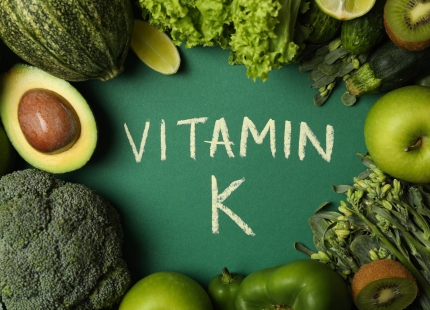Chasing after radiant and youthful-looking skin often involves navigating through an array of skincare products, each boasting unique ingredients and a multitude of promises. While these topical creams, serums, and elixirs can undoubtedly make a noticeable difference, the roots of remarkable, healthy skin often lie much deeper, specifically within the nutrients, vitamins, and minerals that fuel our bodies. The human skin is our largest organ, and similar to other body systems, it necessitates a diverse array of essential vitamins and minerals for optimal function.
This informative guide aims to unveil the best vitamins and supplements for healthy skin, delve into their roles in skin preservation, regeneration, and repair, and provide practical solutions on how to integrate these wonders of nature into our daily regimen. By understanding how to support skin health from the inside, we can maintain youthful and vibrant skin, protect the skin from damage caused by environmental stressors, and improve overall skin health.
Vitamins for Healthy Skin
Vitamin C
Standout for its remarkable antioxidant capacity, vitamin C is an integral component for skin health. It plays a paramount role in collagen synthesis, the protein that gives skin its structural support and elasticity. Vitamin C assists in enhancing skin hydration and staving off damage instigated by harsh environmental elements such as ultraviolet (UV) rays and pollution. By protecting the skin from free radical damage, it helps prevent premature aging and the appearance of fine lines and wrinkles.
Incorporating vitamin C into your diet, via supplements or natural food sources like citrus fruits, strawberries, or leafy greens, can yield an even skin tone, diminish the appearance of skin conditions like acne and hyperpigmentation, and give your skin an illuminating glow. Vitamin C supplements for skin health are among the best vitamins to include in your skincare regimen and can also contribute to vitamins for optimal health and weight.
Vitamin E
Vitamin E functions as a powerful antioxidant, safeguarding the skin from the harmful effects of free radicals arising from environmental stressors like pollution and prolonged exposure to UV rays. An important component for maintaining skin hydration, vitamin E bolsters the skin barrier function, which is critical for overall skin health. It helps keep the skin hydrated and protected, supporting healthy skin from the inside out.
Foods loaded with healthy fats, including assorted nuts, seeds, and avocados, or even oils from wheat germ and sunflowers, can help elevate the levels of vitamin E in your body, contributing to a more youthful and healthier complexion. Vitamin E supplements can also be beneficial for those looking to improve skin health and protect skin cells from damage.
Vitamin A
Vitamin A, along with its compounds like retinol, plays a pivotal role in the process of skin cell turnover. This means it helps slough off old, dull surface cells and replaces them with fresh, vibrant ones. This turnover process is crucial to preserving a youthful appearance by reducing wrinkles and fine lines. Moreover, vitamin A significantly enhances skin texture and supports skin repair.
Consuming vibrant, colorful foods rich in vitamin A like carrots, sweet potatoes, dark leafy greens, and apricots not only ramps up your skin health but also infuses life into your complexion, bringing out that sought-after glow. Vitamin A is one of the essential types of vitamins for beauty, and its role in skin regeneration makes it ideal for addressing concerns related to dry, flaky skin.
Vitamin D
Often christened as the "sunshine vitamin," vitamin D serves a crucial purpose for skin repair and hydration. It also aids in the regulation of the immune system. A fortuitous side effect of this regulatory function is its ability to soothe various skin conditions such as dermatitis and eczema. Though sunlight can naturally stimulate vitamin D production, incorporating vitamin D-rich foods like fortified dairy products, fatty fish, and mushrooms into your diet can help maintain a healthy skin balance.
It's crucial to balance sunshine exposure and sun safety to protect the skin from sun damage and reduce the risk of skin cancer. Vitamin D supplements can support healthy skin, especially in individuals with limited sun exposure.
B Vitamins
B Vitamins, more specifically Biotin (Vitamin B7) and Niacin (Vitamin B3), serve as game-changers for maintaining skin wellness. Biotin bolsters skin hydration and elasticity, while Niacin fortifies the skin barrier and curtails inflammation. Including components such as whole grains, lean proteins like fish and poultry, and eggs in your diet can provide these beneficial vitamins and contribute to healthier, clearer skin.
These vitamins and supplements for skin health can improve skin hydration and protect the skin from environmental stressors, helping to maintain a youthful-looking skin.
Zinc
Though not classified as a vitamin, zinc is an indispensable addition to this list owing to its vital role in skin health. Its primary function is anti-inflammatory, facilitating the healing of acne lesions, reducing irritation, and supporting skin repair. Dietary intake of zinc-rich foods such as meat, shellfish, dairy, nuts, and legumes will help maintain skin's structural integrity and expedite the healing process.
Zinc supplements can be particularly beneficial for individuals dealing with common skin conditions like acne, as they help protect the skin from free radicals and support healthy skin cell growth and repair.
Omega-3 Fatty Acids
Healthy fats, in particular omega-3 fatty acids, significantly contribute to maintaining skin hydration and smoothness. They can help alleviate the uncomfortable symptoms of dry skin and inflammatory skin conditions like psoriasis and eczema. Incorporating fatty fish like salmon, mackerel, and sardines, chia seeds, flaxseeds, walnuts, and hemp seeds into your diet will deliver the omega-3s needed for skin radiance and overall health.
These essential fats help protect your skin from the inside, improving skin elasticity and supporting the skin barrier function.
Antioxidants
Beyond vitamins and minerals, antioxidants found in a broader spectrum of fruits and vegetables are equally instrumental in skin health. They protect the skin from the rigors of oxidative stress and environmental damage. Regularly consuming antioxidant-rich foods, including colorful berries, citrus fruits, and tangy pomegranates, is a solid strategy for fortifying your skin and slowing down the visible signs of aging.
Antioxidants help protect the skin from environmental stressors and free radical damage, supporting healthy and youthful-looking skin.
Collagen Supplements
As we drift further into our aging years, collagen, a key structural protein that provides skin elasticity, declines in production, leading to less firmness and looser skin. By taking collagen supplements or consuming collagen-rich foods such as bone broth, certain fish, chicken, and egg whites, you can help restore skin's structure, which in turn improves texture and radiance.
Collagen supplements are among the best vitamins and supplements for maintaining healthy skin and supporting skin hydration.
Conclusion
Maintaining a well-balanced regimen inclusive of the right vitamins and minerals is key to radiant and glowing skin. Prioritizing a diet teeming with antioxidants, essential vitamins, and healthy fats can alter the health and appearance of your skin from the inside out. Whether your skin goals are to reduce acne, improve skin elasticity, or maintain a youthful appearance, focusing on these vitamins and supplements can serve as a catalyst for achieving those skincare aspirations.
As with any dietary changes or introduction of new supplements, it's always best to consult a healthcare professional to tailor a routine that aligns with your individual needs. With a combination of pragmatic nutrition and diligent skin care, you can protect your skin and help it thrive, ensuring you maintain a vibrant, youthful complexion that reflects your natural beauty.
Frequently Asked Questions
Which vitamin is best for skin?
Vitamin C is often considered the best vitamin for skin due to its role in collagen production and protection against free radical damage. It helps improve skin health, giving you a glowing complexion.
What is the best vitamin for dead skin?
Vitamin A is the best vitamin for promoting skin cell turnover, helping to remove dead skin cells and stimulate the growth of new ones, improving overall skin texture.
Which vitamin gives skin glow?
Vitamins C and E are known to give skin a natural glow by protecting the skin from environmental damage, improving skin hydration, and promoting healthy skin cell growth and repair.
































